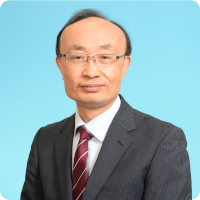In Japan, the birth rate has declined, and the changes in social structure and lifestyle have meant changes in disease and disability patterns and created a new problem in health science. At the same time, the Japanese nation is moving towards health-oriented lifestyles and expects the improvement of “quality of life” and extension of “healthy life expectancy”. It is very difficult to live up to these public demands only by clarifying pathology and causes of diseases so as the development of new treatment or the like. This is because human health is influenced by society, politics, economics, area of residence, and the quality and character of medical professionals. Health science takes a holistic approach to healthy lifestyle, and aims to create communities of healthy people.

In the international society, there is a lack of human resources in health science. The United Nations and World Health Organization (WHO) assist the projects to eradicate AIDS and other infectious diseases, and to reduce perinatal and infant mortality, and want the establishment of educational system of high-quality health science professionals who support the above projects.
The Course of Health Sciences was designed to cope with these many and diverse needs. The program of master course takes a cross-professional approach to education and research with three units: Fundamental Health Sciences, Applied Health Sciences, and International and Community Health Sciences. In the program of Doctoral Course, candidates go deeper into research in their selected fields, following a curriculum in one of three fields: Nursing, Laboratory Sciences, and Rehabilitation Sciences. The ultimate goal is to train health science researchers and educators who understand holistic medicine and have an area of specialty in which they excel both in terms of knowledge and skill.
Graduate School of Health Sciences has the research framework in which well-experienced medical and health professionals can study practical problems and issues in health science. This is based on “The program to cultivate health leaders by circulating human resources between communities and the graduate school.”, which was begun in 2007 with the support of Ministry of Education, Culture, Sports, Science and Technology (MEXT). This program, which can be called regional exchange education, now developed into unified undergraduate and graduate education. In 2014, the School of Health Sciences was appointed as WHO Collaborating Center. At present, we are continuing research and training of educators and medical professionals of inter-professional education (IPE) in Asia, as well as developing training guidelines of IPE. We have also “Master Course of Certified Nurse Specialist”, including Cancer Nursing, Gerontological Nursing, Chronic Care Nursing, and Women’s Health Nursing. In addition, “Master Course of Clinical Research Coordinator (CRC) Supervisor” trains the leader of CRC. In 2014, the “Gunma Prefecture-wide Education of Community-based Nursing Leaders” program was adapted by MEXT. In this program, we have been training the leader of nursing professionals who, in a super-aging society, are rooted in the local area and dedicated to the care of its residents from cradle to grave.
We are looking forward to accepting students who are attentive to the needs of society and have the desire to learn health science flexibly and creatively with us.